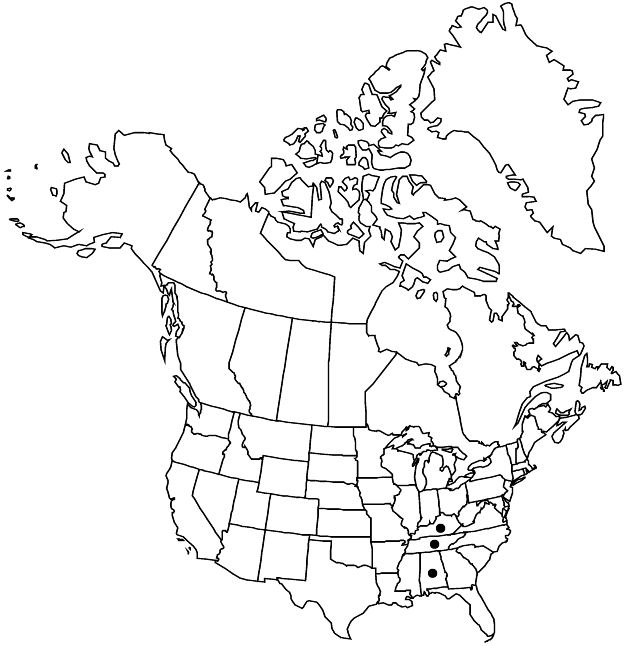Difference between revisions of "Oxalis macrantha"
Bull. Torrey Bot. Club 23: 268. 1896.
imported>Volume Importer |
imported>Volume Importer |
||
| Line 78: | Line 78: | ||
|publication year=1896 | |publication year=1896 | ||
|special status= | |special status= | ||
| − | |source xml=https:// | + | |source xml=https://bitbucket.org/aafc-mbb/fna-data-curation/src/2e0870ddd59836b60bcf96646a41e87ea5a5943a/coarse_grained_fna_xml/V12/V12_323.xml |
|genus=Oxalis | |genus=Oxalis | ||
|species=Oxalis macrantha | |species=Oxalis macrantha | ||
Latest revision as of 19:14, 5 November 2020
Herbs perennial, caulescent, strongly colonial rhizomes or stolons usually present, bulbs absent. Aerial stems usually 2–8 from base, erect initially, usually becoming decumbent, 5–20(–40) cm, becoming woody proximally, hirsute-pilose on at least proximal 2/3, hairs curved, loosely and irregularly spreading, nonseptate. Leaves basal and cauline; stipules oblong, margins narrowly flanged or without free portions, apical auricles absent; petiole 2–7 cm; leaflets 3, green, obcordate, 3.5–12 mm, lobed 1/5–1/3 length, surfaces usually strigose-hirsute, sometimes glabrate, oxalate deposits absent. Inflorescences umbelliform cymes, less commonly irregular cymes, (1–)3–8-flowered; peduncles (3–)5–10(–15) cm. Pedicels villous, hairs long, spreading. Flowers distylous, well above level of leaves; sepal apices without tubercles; petals yellow to yellow-orange, with prominent red lines proximally, (13–)15–20(–23) mm. Capsules angular-cylindric, abruptly tapering to apex, 10–15 mm, sparsely to densely hirsute-pilose, hairs long, sometimes mostly along angles. Seeds brown, transverse ridges usually white.
Phenology: Flowering Mar–May.
Habitat: Dry limestone glades, cedar barrens, chalk prairies, limestone bluffs and outcrops.
Elevation: 100–300 m.
Distribution

Ala., Ky., Tenn., Mexico (Nuevo León).
Discussion
Oxalis macrantha is restricted mostly to limestone glades in Alabama, Kentucky, and Tennessee. It is recognized by its villous to villous-hirsute stems, flowers in umbelliform cymes, and large yellow to yellow-orange corollas with red lines proximally. The lines in the throat remain visible after drying and usually can be seen on herbarium specimens even from the outside of the flower. A similar pattern also occurs in other species, especially O. grandis, O. illinoensis, and O. texana.
Seemingly disjunct plants of native habitats in Nuevo León, Mexico, identified as Oxalis macrantha apparently are more common than reported by G. L. Nesom (2009b). Whether these are actually disjunct or a parallel morphological expression derived from some Mexican species needs to be investigated.
Selected References
None.